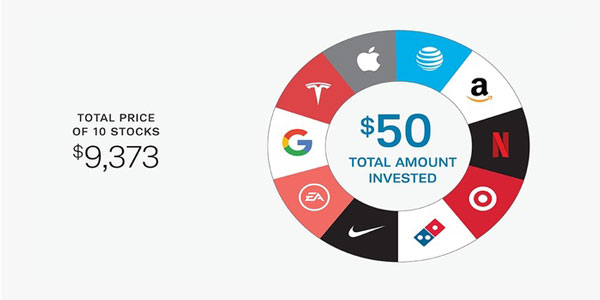How Citi is Shaping the Payments-as-a-Service of Tomorrow?
Nov 04, 2024 By Triston Martin
As change continues to twist the financial landscape, the silhouettes of Payments-as-a-Service seem to appear on the horizon of a redefined world as a revolved manner in which businesses and customers will approach transactions. Out in the lead of the wave is one of the world's most prominent financial institutions, namely Citi.
Technology and innovation not only improve payment solutions but also set the pace for efficiency, speed, and customer satisfaction. This piece goes very deep into the various aspects of Citi's payments-as-a-service strategy and indicates the future of payments, the role of instant payments, the involvement of technology, and the collaboration with fintechs.
Payments-as-a-Service: The Emerging Trend
Payments as a Service was fundamentally altering the face of payment processing being implemented into business models. Hitherto, firms always had to develop and operate cumbersome systems for payments in-house, which meant that they needed enormous resources and expertise. PaaS simplifies this by encouraging companies to outsource payment processing to experienced financial organizations like Citi, freeing up the focus of businesses on core operations since experts handle payments efficiently.
He emphasized the need for this shift in the future of payments that Debo Sen, Head of Payments at Citi, had to say. He felt that, in this regard, businesses could now offer painless payment experiences without all the pains of owning and managing payment infrastructures. It makes a great case for SMEs that do not have much in terms of resources to build robust payment systems. Through its PaaS offerings to these companies, they can tap into innovative payment technologies that will help them stay ahead in the increasingly competitive space.

Customers also demand faster and more efficient transactions that increase the demand for real-time payments, be it countries like India, Brazil, or the like. In India, for instance, the Unified Payments Interface (UPI) really shows headway with user adoption. Recent reports indicate that 85% of the transactions in India are processed in real-time compared with the traditional methods that involve delays in processing payments. It, therefore, reflects how this PaaS is essential for businesses that look to meet customers' expectations at all points in time.
Instant Payments: The Game Changer
Instant payments form a watershed moment in the evolution of financial transactions. The instant settlement is of paramount importance not only to the customers but also to businesses. This leads to increased consumer satisfaction as well as efficient cash flow management for businesses. Real-time payments eventually settle refunds and issues quickly and very easily, thus establishing deeper consumer relationships.
When it comes to the immediate processing of payments, Citi is asserting that it is all on board the boat for an increase in them. Competition necessitates that the bank embrace the immediacy that the consumers of the day demand. Furthermore, this change is not without its nemesis. High volumes of instant transactions call for more involvement of financial institutions in infrastructure investment. People upgrade their systems to provide better services and strengthen data verification processes. Above all, security measures must be in place to protect sensitive information from falling into the wrong hands.
Instant payments are revolutionizing cross-border transactions, which have been defined for a long time by slow transactions and pricey processes. Among the notable initiatives through which Citi is making an effort to make these happen faster include Swift GPI (Global Payments Innovation). The bank is further improving the transparency level of such transactions and offering richer data on transactions, thus enhancing business confidence and handling of international transactions.
Advancements Changing the Future of Corporate Banking
But mainly, the underpinning of Payments-as-a-Service appears to be technology. Innovations like tokenization and smart contracts promise to completely revolutionize the way payments get processed. Tokenization offers security on sensitive card data: it takes card details and replaces them with unique identifiers, thus reducing the chances of fraud. On the other hand, in the same digital world, cyber threats grow more sophisticated.
Another promising idea is smart contracts that represent self-executing contracts by having the terms of the particular contract directly written into lines of code. A contract, in this case, regarding international trade would see the completion of transactions through automated payment release upon fulfilling certain conditions. For instance, under Project Agora, as a collaboration between central banks and commercial banks, tokenized assets would be considered in attempting to utilize these across borders in order to make payments. This innovation may shift the paradigm for international transactions: faster, cheaper, and more secure.

In addition, the adoption of ISO 20022 as a standard messaging protocol for electronic data interchange represents an important step toward promoting interoperability between payment systems. Conversion will likely change the quality of data exchanged in the course of transactions and make reconciliation and compliance reporting easier. In embracing this standard, Citi is positioning the company as a leader in the arena of payment innovation by equipping businesses to help them navigate the complexities of modern payment processing.
Collaboration with Fintechs: A Strategic Advantage
Citi acknowledges that partnership with fintech is one of the fundamental engines of innovation in the payments ecosystem. By partnering with agile, technology-savvy start-ups, Citi can enhance its service offerings, and these companies will have continued access to the infrastructure hosted by Citi. This mutual relationship is essential in designing new payment solutions in tandem with the changing requirements of customers and businesses.
Since many fintech companies are always on the edge of new technological developments, they try out new ideas and ways that can change how payments are made. Some specific examples include know-your-customer (KYC) companies, which may be essential to processes that ensure compliance; through collaboration, Citi can partner with other fintechs to standardize these processes toward rapid, secure onboarding of customers by business consumers.
Conclusion
As the financial environment continues to evolve, Citi is set to assume a leadership role in Payments-as-a-Service. Through instant payments, embracing the newest technological innovations, and partnering with fintech companies, Citi is well-equipped to help shape the future of payment processing. The emphasis on efficient, effective, and secure payment solutions ties into a broader trend throughout the industry, continuously pushing for highly fluid, convenient, and speedy payment solutions that address the needs of modern consumers.

Back Tax Relief: How To Get Rid Of Them

Unintended Harm: Is Fraud Prevention Hurting Financial Inclusion?

Understanding Bonds and Investment Opportunities

All About International Tax Competitiveness Index 2022

Is There a Deduction Limit on Charitable Donations?

All About the Fractional Investing: Get Started in the Market Without Much Money

ETF vs. Index Fund: An Overview

5 Essential Social Marketing Tips for Fintech Startups in 2024

Marginal Tax Rate: What is it?

